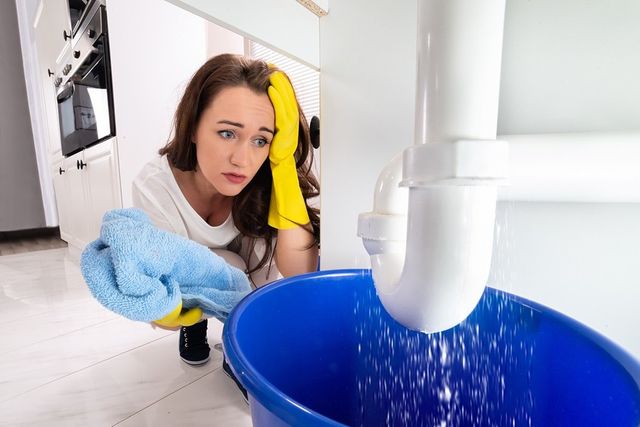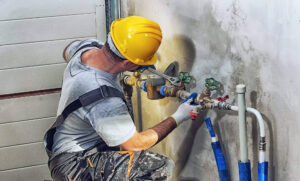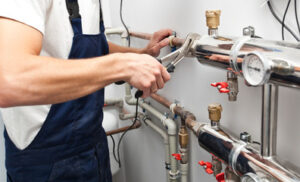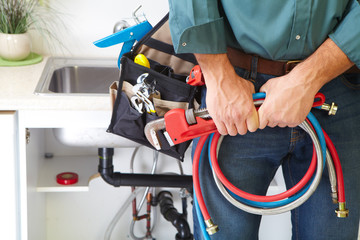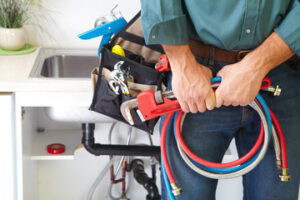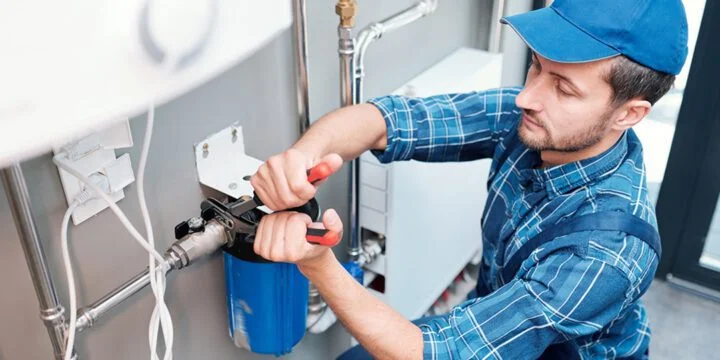Plunger Plumber has the skills and experience necessary to work with larger systems in a commercial setting. This includes shopping centers, office buildings, and other large structures.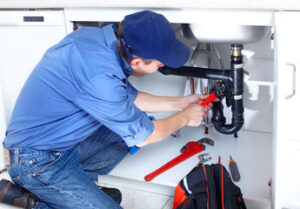
For example, a hotel may have many stories that all require sinks, toilets, and pipework to run properly. Also, they must adhere to strict health codes and regulations.
If you’re planning to have a new commercial plumbing system installed, it is essential to use a professional. This is because a plumber who does commercial work on a regular basis will be much more adept at installing systems that cater to a wider range of needs than a plumber who only works in single-family homes.
Additionally, a commercial plumber understands the different types of materials that need to be used to create and install plumbing systems that can withstand the heavy demands placed on them by a larger number of people using the system simultaneously than in a home. They also know how to work with the different codes and permits that must be obtained to perform plumbing installation and repair services on commercial properties.
Plumbing problems that arise in commercial buildings often have a greater impact on the people inside. That’s because they often use more sinks, toilets, and urinals than a typical home. This means that if one fixture or pipe becomes damaged, the entire building could be affected. Fortunately, a commercial plumber can handle these types of problems quickly and efficiently so that the damage doesn’t cause too much disruption in business operations.
Whether you need a new kitchen, bathroom, or other type of plumbing fixture installed on your commercial property, our experienced and certified plumbers can do it all. We will help you choose the right fixtures and install them properly to ensure your plumbing system is in top condition. We also offer emergency service when you need it the most.
When a commercial plumbing issue affects your company or commercial property, it can have devastating effects on customer satisfaction and worker productivity. That’s why it’s important to call the experts whenever you have a problem. We can provide a rapid diagnostic visit using a plumbing camera inspection to identify the source of the problem and get it fixed as soon as possible.
In addition to offering installation services, we can also provide a range of maintenance services, including hydroscrub drain cleaning, restroom disinfection, and odor control services. With our maintenance plan, you can reduce the risk of costly repairs and keep your building running smoothly for as long as possible.
Maintenance
Commercial plumbers often perform preventative maintenance services to keep businesses running smoothly. For example, they may check the plumbing systems for signs of leaks or clogs and make repairs before they become more serious problems. They can also install and repair appliances like water heaters. These tasks require a higher level of skill and knowledge than residential plumbing, so it’s important to find a plumber who is experienced with commercial properties.
In addition to preventative maintenance, commercial plumbers can also help with emergency situations. For instance, if a business has a major water leak, the plumber can shut off the water so that it does not cause further damage. They can also fix sewage backups and other issues that affect the entire building. It is important to hire a commercial plumber who is licensed and insured in order to ensure that they are qualified to work on your property.
While many people assume that any plumber can fix a leaky faucet, this is not necessarily the case. It’s best to hire a commercial plumber who has experience working in a business or on commercial property, as they will have the skills and knowledge necessary to complete the job quickly and efficiently. It is also a good idea to ask about their previous experience and ask for references.
One of the biggest differences between residential and commercial plumbing is size. A residential plumber is generally responsible for repairing and maintaining plumbing in homes, while a commercial plumber will work on larger-scale projects such as office buildings, restaurants, retail stores, and hospitals. Commercial plumbers must be able to work well with architects and engineers in order to meet deadlines and stick to budgets.
In general, commercial plumbing is more complex than residential plumbing because the pipes are bigger and there is a greater potential for problems. For example, the tallest skyscraper in Philadelphia requires 249,908 gallons of water per day to be circulated throughout all 163 floors! Commercial plumbers must be familiar with industry standards and best practices in order to maintain these types of large-scale plumbing systems.
Repair
Plumbing problems can happen at any time, and when they do, the stakes are higher in commercial buildings. If a commercial plumbing issue goes untreated, it can cause significant water damage that disrupts business operations and costs more to repair than it would in a residential setting. A commercial plumber is trained to spot problems and take swift action before they become bigger issues that shut down the business or cause irreparable damage.
In addition to fixing leaks, clogged drains, and other repairs, a commercial plumber can also help with backflow prevention, fixture replacement, and more. Commercial plumbing systems are designed to handle a higher volume of usage than residential systems, so they tend to experience more wear and tear and require more frequent maintenance. This is one of the main reasons why it’s so important to hire a professional commercial plumber to service your business.
Fixing a clogged drain in a home is usually a simple process for a plumber. They can use a drain snake to break up blockages in toilets, showers, kitchen sinks, and other drain lines with relative ease. In a commercial building, however, a clogged drain can affect multiple toilets, sinks, and appliances on the same floor. The plumber may need to go to each floor of the building to locate the clogged line and clear it.
Commercial plumbing is also a little bit more complex when it comes to detecting and fixing problems. Leaks can be harder to detect in commercial buildings, and they could occur in areas that aren’t as easy to access as in a home. For instance, if a pipe in a commercial building is leaking, the plumber might need to shut off water to other parts of the building and then search for the source of the leak, which can be challenging in high-rise buildings.
Commercial plumbing is a more specialized field than residential plumbing, and it requires more knowledge and expertise to diagnose and fix problems. But a good commercial plumber can save your business money in the long run by performing preventative maintenance and catching issues before they turn into costly disasters.
Service Agreements
Service agreements, also called maintenance contracts or home service plans, are a great way to ensure that preventative maintenance is performed on plumbing systems. This type of agreement creates a partnership between the plumber and the customer. This helps keep plumbing systems clean and performing at a higher level, which will result in fewer emergency calls and lower repair bills. Service agreements can be found in many different forms and can be used for both commercial and residential plumbing systems.
For some, a service contract can be a way to generate repeat business from customers who may otherwise not hire the plumbing contractor again. This can be especially beneficial for plumbers who are not in the habit of scheduling regular visits to their clients’ homes. It can also be a useful tool for retaining customers during a slow period.
When it comes to writing up a service contract, the most important thing is to clearly define all aspects of the work that will be done and the pricing for that work. A comprehensive description of the work will help protect both parties in the event of any future disputes or misunderstandings. It is also a good idea to include any special terms of the agreement, such as whether or not the work will be covered by warranties, how disputes will be handled, and whether the contract can be assigned to another party.
The contract should also specify any additional fees, such as materials, labor, and cleaning solutions. The pricing should be based on the actual costs for the plumber to perform the services and should remain below the value that is placed on the work by the customer. A good practice is to use a template with pricing tables and a breakdown of all possible costs.
The service contract should also contain a clause detailing the plumber’s liability coverage. The coverage should be adequate for the scope of the work and should cover both bodily injury and property damage. In addition, the contractor should be able to provide a copy of their insurance certificate upon request.


